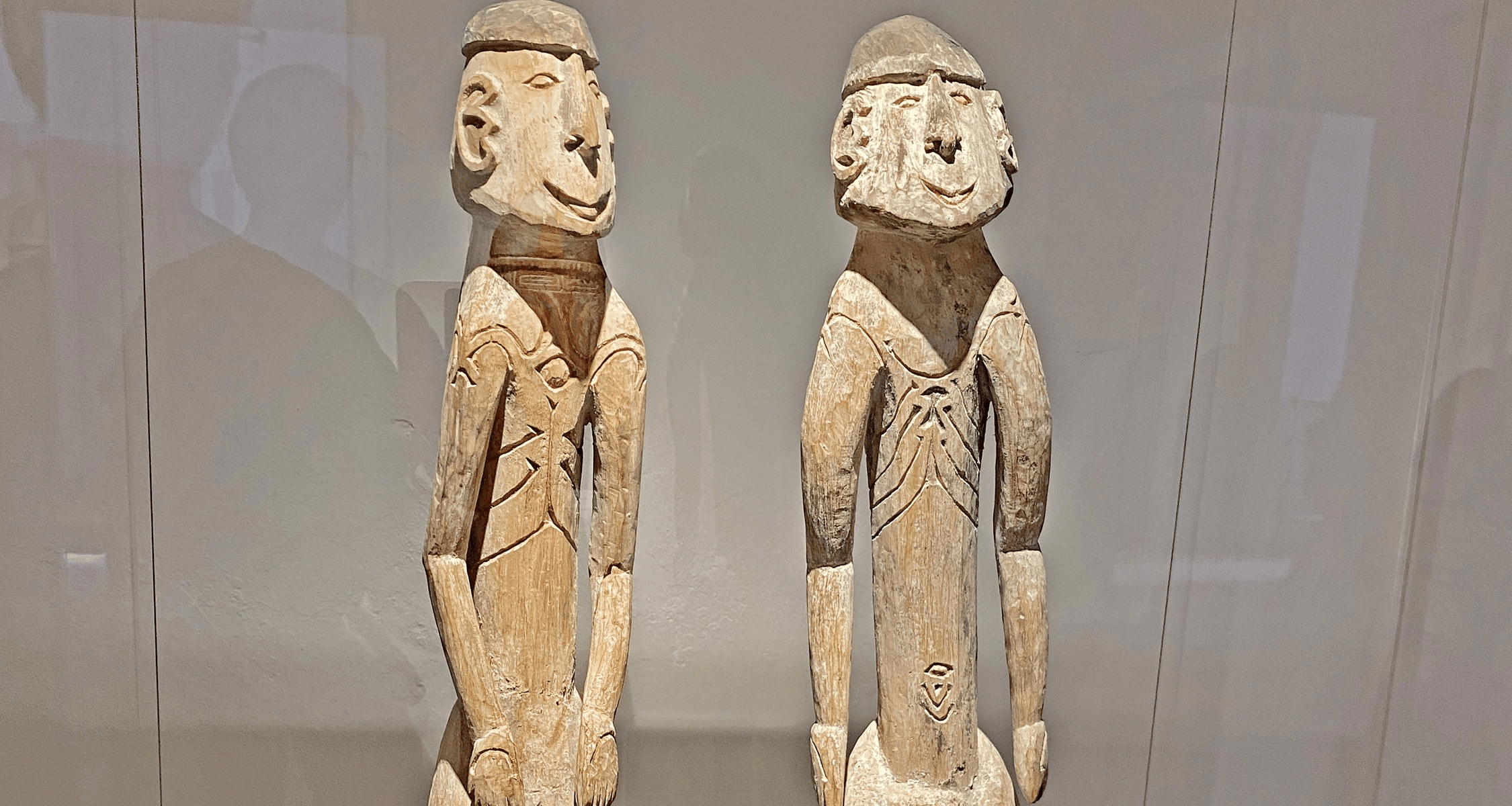Main Content
Agency and Ethics - Sensitive Objects in University Collections (AESOH)

Funding project for the indexing and research of Marburg holdings
The numerous scientific collections at Philipps University contain objects that raise ethical questions: Human remains and religious objects will be examined scientifically over the next four years by an interdisciplinary project group led by Prof. Dr. Tanja Pommerening, Prof. Dr. Edith Franke and Prof. Dr. Ernst Halbmayer. The Federal Ministry of Education and Research (BMBF) is funding the project with 1 million euros as part of the "Alliance for University Collections II" funding guideline. The aim of the funding is to network, develop and research scientific collections at German universities.
"The scientific collections at Philipps-Universität are a rich and important resource for research and teaching. Opening them up, making them accessible beyond the borders of Marburg and answering questions about the ethical handling of the objects is an important impulse for improving the research infrastructure," emphasizes Prof. Dr. Gert Bange, Vice President for Research at the Philipps-Universität Marburg.
The Marburg joint project "Agency and Ethics - Sensitive Objects in University Collections (AESOH)" aims to identify sensitive objects in the scientific collections of the Philipps University and to deal comprehensively with the challenges of their acquisition, digitization, research and possible accessibility. This is done in cooperation with the Reiss-Engelhorn-Museen in Mannheim, the Übersee-Museum in Bremen, the Senckenberg Naturmuseum in Frankfurt and the Museum für Sepulkralkultur in Kassel. In addition, a discourse with the public and the international scientific community will promote the topic. The project is one of six funded projects throughout Germany and is supported by the Coordination Office for Scientific Collections in Germany.
The project team is focusing primarily on human remains and religious objects, so that the sub-projects are mainly based on holdings from the Religious Studies, Ethnographic and Medical History and Anatomy Collections. A further sub-project is developing networks for the procurement of Egyptian mummies and their parts, both between Marburg collections and in other German-speaking countries, in order to place the local case studies in a broader context.
The head of the joint project, Prof. Dr. Tanja Pommerening, emphasizes: "The innovative aspect of the AESOH project is bringing together, examining and discussing sensitive objects from the perspective of their agency, i.e. their impact. The Marburg site is particularly predestined for our investigations due to its large number of human and religious collections, especially because of the questions of respectful and ethically appropriate handling."
The Department of Social and Cultural Anthropology and the associated Ethnographic Collection are involved in this collaborative project with the subproject "Handling human remains, ancestors, and gods of Afro-American altars in collections and exhibitions." The subproject examines the treatment of human remains and sacred objects through a collection of five selected Afro-American altars in the Ethnographic Collection (Tchaba Altar [Voodoo], Ghana, approximately 150 objects; Palo Monte Altar, Cuba, approximately 250 objects; Candomblé Altar Brazil, around 1000 objects; Pomba Gira Altar, Brazil, about 50 objects; Voodoo Altar Haiti, (uncounted)), and the ancestors, gods, and cosmologies materialized through them, along with their agency. The altars were donated to the Ethnographic Collection by the Kunsthalle Düsseldorf in 2012 and have so far not been inventoried or only as conglomerates. The objects are sensitive on various levels: firstly, they contain components made of bones, some of which may reasonably be suspected to be human remains; secondly, from the perspective of the actors, some objects are considered ancestors or deities and are therefore also sensitive or delicate. Although the provenance of the altars is known, the circumstances of acquiring the altars for the exhibition are the subject of investigation in the project. The analysis focuses on the dynamic practices and processes of materialization, i.e., different types of relationships between objects and individuals are examined. How are these implemented and transformed? Materializations thus express themselves in the contact as well as the communication between things and people. What concepts and forms of agency underlie them? The things associated with the altars are examined from the perspective of religious practice regarding their meanings, relationships, functions, and agency, as well as the resulting ethical requirements in dealing with them.
Click here to visit the project homepage
| BMBF-funded joint project leader: | Prof. Dr. Tanja Pommerening, Prof. Dr. Edith Franke and Prof. Dr. Ernst Halbmayer |
| Sub-project leader: | Dr. Dagmar Schweitzer de Palacios |
| Duration: | 1.7.2023 - 30.06.2027 |
| Financing: | Bundesministerium für Bildung und Forschung (BMBF); Förderlinie „Vernetzen – Erschließen – Forschen. Allianz für Hochschulsammlungen II“ |